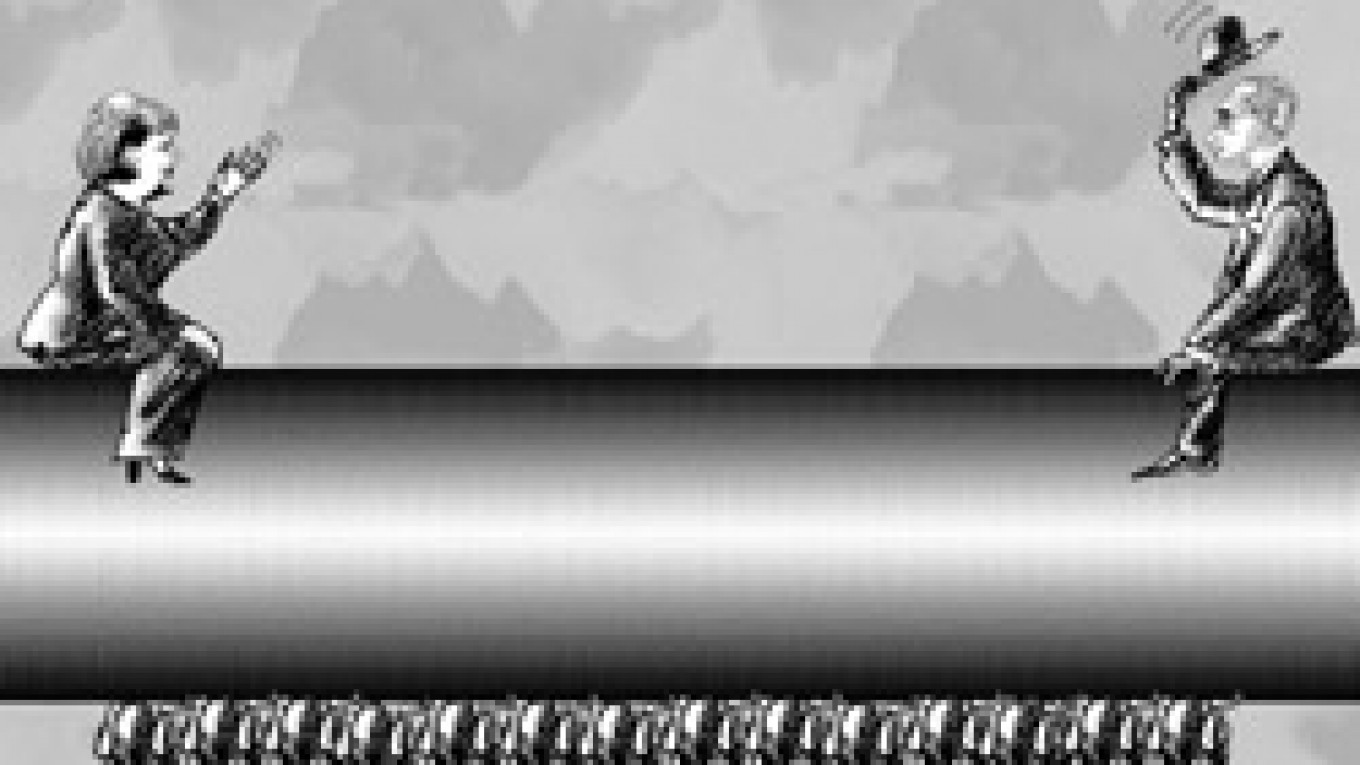Nazi Germany’s greatest war crime is the Holocaust, of course, but the genocides against Ukrainians and Belarussians constitute a close second. And yet, while the Holocaust is common knowledge, few know much about the extermination of Ukrainians and Belarussians —and Germans may know about this least of all. The tragedy of these peoples’ suffering in the war has been compounded by the world’s almost complete ignorance and indifference.
That lamentable condition may be about to change, if only among professional historians. In a ground-breaking article that was published in the July 16 issue of The New York Review of Books, Yale University historian Timothy Snyder describes in excruciating detail just how Nazi policy was directed at exterminating first the Jews and then the Slavs. Since Belarus and Ukraine were occupied for almost four years, they suffered enormous population losses.
According to Snyder, “Half of the population of Soviet Belarus was either killed or forcibly displaced during World War II: nothing of the kind can be said of any other European country. … The peoples of Ukraine and Belarus, Jews above all but not only, suffered the most, since these lands were both part of the Soviet Union during the terrible 1930s and subject to the worst of the German repressions in the 1940s. If Europe was, as Mark Mazower put it, a dark continent, Ukraine and Belarus were the heart of darkness.”
The devastation that affected both countries is even greater when one considers their experiences in the Stalinist 1930s and in World War I. Ukraine lost at least 3 million people in the genocidal famine of 1933. Both countries also served as the main killing fields of the Eastern Front during World War I (1914-18), the Civil War in Russia (1918-21) and the Polish-Russian War (1919-21).
According to a recent study of the Moscow-based Institute of Demography, Ukraine suffered close to 15 million “excess deaths” between 1914 and 1948:
• 1.3 million during World War I
• 2.3 million during the Civil War, the Polish-Soviet War, and the famine of the early 1920s
• 4 million during the genocidal famine of 1933
• 300,000 during the Great Terror and the repressions in Western Ukraine
• 6.5 million during World War II
• 400,000 during the post-war famine and the destruction of the Ukrainian nationalist movement
| | |
|
To Our Readers | |
|
The Moscow Times welcomes letters to the editor. Letters for publication should be signed and bear the signatory's address and telephone number.
| |
| | |
Ukraine and Belarus experienced nearly 40 consecutive years of relentless death and destruction, starting in 1914 and ending with Stalin’s death in 1953. Although Soviet Russia bears a great deal of responsibility for the killing, the lion’s share falls on Germany.
And yet Germany, which so assiduously remembers its crimes during the Holocaust, has still to build one monument to the millions of Belarussians and Ukrainians its armies killed in the 20th century.
How can this blindness be explained?
Partly, it’s a function of ignorance. The German media devote almost no coverage to Belarus and Ukraine. It is also partly because Germans just don’t “see” these countries.
Nobel Prize winner Heinrich Boll’s 1949 novel “The Train Was Punctual” provides a good example of this cultural mindset. The novel describes a young German soldier’s return to the front in southern Ukraine. As he travels eastward from his furlough, he traces his route on a map and “visits” various cities, towns and villages in Ukraine. He speaks of Poles and Jews and Russians in great detail, but he doesn’t mention Ukrainians once, even though they formed the vast majority of the country and were the people whose farms he and his comrades probably plundered on a daily basis. Imagine a trip through the American South without a single reference to the black population.
But why don’t Germans “see” people who are so manifestly there? To some degree it’s because the “Untermenschen have remained Untermenschen” — economically underdeveloped peoples with silly cultural practices who either can’t get their political act together (Ukraine) or are proud to be Europe’s only dictatorship (Belarus).
The more important explanation is that German elites have traditionally viewed their neighbors to its east through the prism of great-power politics. Russia is big and strong and therefore demands respect. Its ruler may be a dictator, and its policies may be neo-imperialist, but these matters are easily overlooked. Former German Chancellor Gerard Schröder still managed to describe former President Vladimir Putin as a “true democrat” at precisely the time that Putin was doing all he could to crush Ukraine’s Orange Revolution. Poland may be prone to polnische Wirtschaft (the derisive term for Poles’ inability to do things efficiently), but they’re right next door and have to be dealt with.
But Belarus and Ukraine? They’re just places with pipelines that carry Russian gas to German homes and factories.
Alexander J. Motyl is professor of political science at Rutgers University-Newark in New Jersey.
A Message from The Moscow Times:
Dear readers,
We are facing unprecedented challenges. Russia's Prosecutor General's Office has designated The Moscow Times as an "undesirable" organization, criminalizing our work and putting our staff at risk of prosecution. This follows our earlier unjust labeling as a "foreign agent."
These actions are direct attempts to silence independent journalism in Russia. The authorities claim our work "discredits the decisions of the Russian leadership." We see things differently: we strive to provide accurate, unbiased reporting on Russia.
We, the journalists of The Moscow Times, refuse to be silenced. But to continue our work, we need your help.
Your support, no matter how small, makes a world of difference. If you can, please support us monthly starting from just $2. It's quick to set up, and every contribution makes a significant impact.
By supporting The Moscow Times, you're defending open, independent journalism in the face of repression. Thank you for standing with us.
Remind me later.


